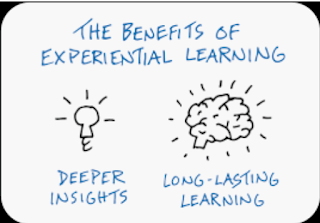While our learners certainly dedicate loads of time mastering fundamental math algorithms and formulas, it's equally important that we provide them with opportunities to apply their knowledge and understanding of these skills in real-life math scenarios. Designing learning experiences that model mathematics pushes learners to think deeper about math, allowing them to see the connections and offering meaningful context for their learning. As we often say in The Hive, "We're keeping it real". The goal of our math learning experiences is aimed at doing just that and this week's guest bloggers are excited to explain the value in it. Enjoy.
The importance of connecting math to the real world is HUGE! For example, let's say your pizza parlor is too small and a line of people going all the way around your restaurant waiting to buy your pizza. People wait in line for hours to have your pizza, but this isn't necessarily good for business. You decide to hire an architect to design plans to remodel your restaurant to make it twice the size it is now. The architect would have to use his/her understanding of multiplication and fractions to convert the measurements to two times the size. We did this in class and I remodeled my restaurant to six times the size. This experience showed me how to use the math skills I have learned and how I might use them in a real-world situation. - "Tazer"
Every single job out there involves math in one way or another. It's important to learn math skills when you are young and have a chance to apply the skills in a real-world situation because if you are looking to get a job, but have no experience with real-world problems, you probably aren't very qualified for the job. - "Glisten"
Connecting what we learn in math to the real world is important. For example, if you have to bake something for a party and your recipe won't make enough to feed all of the people at your party, you would have to know how to double or triple the recipe so that you will have enough for all of your guests. When we learn how to multiply fractions in the classroom and have a chance to use that knowledge in a real-world situation, it helps us see how important it is for us to learn these skills and how we actually might use them someday. - "Rianna!"
Every job you do has math in it and if we didn't learn the connections between math and real life, we wouldn't know what skills we'd need to use in certain situations. I think connecting math to the real world is really important and that all schools should teach kids how to make these connections. - "Mala!"
Imagine you were an architect and the owner of a restaurant wanted you to double the size of his restaurant. You'd have to do a ton of math to figure out how to do that, including multiplying some fractions. I tripled the square footage of my restaurant and had to use my knowledge of multiplying fractions by whole numbers - it was a whole different story! - "Drain"
My pizza fraction project showed me how math is used in the real world because I had to multiply fractions to make my pizza restaurant bigger. If I didn't do the math calculations correctly, my restaurant would not be safe enough to open (it could collapse!). This was a fun project and I could definitely see the connection to the real world. - "Lam"
Math is everywhere, so making real-life connections when we're learning new math skills is really important. Even though I didn't choose the pizza parlor project, I can still understand how it connects to the real world. Knowing how to multiply fractions and how you might use that skill is very important. - "Ritzi"
The importance of connecting math to the real world is huge because if you know the answer to a simple math problem, that's great, but if you can figure out how that skill can be used in a real-world problem, then that's one of the best math skills you can have. It was crazy for me to see the math connection with multiplying fractions in our pizza projects. - "N.A.S.A."
It's important to apply your knowledge of math to real-world problems because if you're just sitting there absorbing information and never learning how to apply that knowledge, it renders that knowledge useless. - "Champ"
Being able to use our math skills in real-world situations is really helpful. For example, if I'm planning a party and using a recipe that only serves five people and I'm going to have 10 guests, then I would need to know how to double my recipe (or multiply fractions). People who bake or cook a lot probably do this all the time, so learning how to multiply fractions would help people know how to do this. - "Lize"












